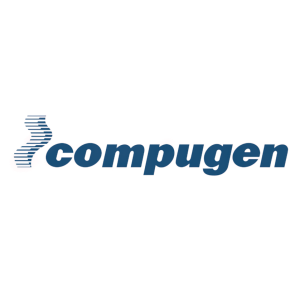Compugen Publishes Paper in Cancer Immunology Research on Unique Biology of PVRIG and its Therapeutic Potential
Rhea-AI Summary
Compugen has published a peer-reviewed paper in Cancer Immunology Research, highlighting the unique biology of PVRIG and its therapeutic potential. PVRIG, discovered by Compugen, is expressed on stem-like T cells in dendritic cell-rich niches in tumors. The study shows that blocking PVRIG, combined with anti-TIGIT and anti-PD-1 therapies, can induce immune infiltration in non-inflamed tumors, potentially overcoming resistance to immunotherapy. Phase 1 trials of COM701, an antibody targeting PVRIG, demonstrated durable clinical responses and a favorable safety profile in typically non-responsive cancer types.
Positive
- Publication in a high-impact journal enhances Compugen's scientific credibility.
- Discovery of PVRIG and its potential synergy with anti-TIGIT and anti-PD-1 therapies offers new treatment avenues.
- Phase 1 trials of COM701 showed durable clinical responses and a favorable safety profile.
- Advanced understanding of PVRIG's role in cancer can aid in overcoming resistance to existing immunotherapies.
Negative
- The therapeutic potential is still in early-phase trials, with no guarantees of success in later phases.
- Research and development expenses may increase as further trials are required.
- Results, while promising, are to specific non-inflamed tumor types.
News Market Reaction – CGEN
On the day this news was published, CGEN declined 3.17%, reflecting a moderate negative market reaction.
Data tracked by StockTitan Argus on the day of publication.
HOLON,
"Increasingly, we are observing that an additional component is needed to optimize the anti-tumor response to a combination of an anti-TIGIT and anti-PD-(L)1," said Anat Cohen-Dayag, Ph.D., President, and Chief Executive Officer of Compugen. "Through our computational discovery work at Compugen we were the first to discover the novel immune checkpoint PVRIG and later presented preclinical data on the potential synergy in blocking PVRIG, TIGIT and PD-1 pathways. Subsequently, we showed in Phase 1 studies, that the triple blockade of PVRIG with our potential first-in-class antibody, COM701 in combination with an anti-TIGIT and anti-PD-1 demonstrated durable clinical responses with a favorable safety profile in indications typically not responding to immunotherapy. These responses were associated with the infiltration and proliferation of cancer-fighting T cells in the tumor microenvironment, atypical for less inflamed indications."
Eran Ophir, Ph.D., Chief Scientific Officer at Compugen added, "Our paper published online today in Cancer Immunology Research provides an advanced understanding of the unique biology of PVRIG and its role in cancer. Using single-cell RNA sequencing and spatial transcriptomic analysis, we showed the differentiated expression of PVRIG and its ligand PVRL2 on early differentiated stem like memory T cells and dendritic cells, respectively, the interaction of which plays an important role in inhibiting the recruitment and proliferation of cancer fighting T-cells in the tumor microenvironment. This unique biology of PVRIG may support a novel approach of potentially overcoming resistance to immunotherapy by sensitizing tumors to respond to other immune checkpoint inhibitors."
About Compugen
Compugen is a clinical-stage therapeutic discovery and development company utilizing its broadly applicable predictive computational discovery capabilities to identify new drug targets and biological pathways for developing cancer immunotherapies. Compugen has developed two proprietary product candidates: COM701, a potential first-in-class anti-PVRIG antibody and COM902, a potential best-in-class antibody targeting TIGIT for the treatment of solid tumours. Compugen also has a clinical stage partnered program, rilvegostomig (previously AZD2936), a PD-1/TIGIT bispecific antibody where the TIGIT component is derived from Compugen's clinical stage anti-TIGIT antibody, COM902, in Phase 3 development by AstraZeneca through a license agreement for the development of bispecific and multispecific antibodies. In addition, the Company's therapeutic pipeline of early-stage immuno-oncology programs consists of programs aiming to address various mechanisms of immune resistance, of which the most advanced program, COM503, is in IND enabling studies is licensed to Gilead. COM503 is a potential first-in-class, high affinity antibody which blocks the interaction between IL-18 binding protein and IL-18, thereby freeing natural IL-18 in the tumor microenvironment to inhibit cancer growth. Compugen is headquartered in
Forward-Looking Statement
This press release contains "forward-looking statements" within the meaning of the Securities Act of 1933 and the Securities Exchange Act of 1934, as amended, and the safe-harbor provisions of the Private Securities Litigation Reform Act of 1995. Such forward-looking statements are based on the current beliefs, expectations, and assumptions of Compugen. Forward-looking statements can be identified using terminology such as "will," "may," "expects," "anticipates," "believes," "potential," "plan," "goal," "estimate," "likely," "should," "confident," and "intends," and similar expressions that are intended to identify forward-looking statements, although not all forward-looking statements contain these identifying words. Forward-looking statements include, but are not limited to, statements relating to our observation that an additional component is needed to optimize the anti-tumor response to a combination of an anti-TIGIT and anti-PD-(L)1 and statements to the effect that the unique biology of PVRIG may support a novel approach of potentially overcoming resistance to immunotherapy by sensitizing tumors to respond to other immune checkpoint inhibitors. These forward-looking statements involve known and unknown risks and uncertainties that may cause the actual results, performance, or achievements of Compugen to be materially different from any future results, performance or achievements expressed or implied by such forward-looking statements. Among these risks: clinical development involves a lengthy and expensive process, with an uncertain outcome and Compugen may encounter substantial delays or even an inability to begin clinical trials for any specific product or may not be able to conduct or complete its trials on the timelines it expects; Compugen's business model is substantially dependent on entering into collaboration agreements with third parties and Compugen may not be successful in generating adequate revenues or commercializing aspects of its business model; Compugen's approach to the discovery of therapeutic products is based on its proprietary computational target discovery infrastructure, which is unproven clinically; Compugen does not know whether it will be able to discover and develop additional potential product candidates or products of commercial value; and conditions in
Company contact:
Yvonne Naughton, Ph.D.
Head of Investor Relations and Corporate Communications
Email: ir@cgen.com
Tel: +1 (628) 241-0071
![]() View original content:https://www.prnewswire.com/news-releases/compugen-publishes-paper-in-cancer-immunology-research-on-unique-biology-of-pvrig-and-its-therapeutic-potential-302147507.html
View original content:https://www.prnewswire.com/news-releases/compugen-publishes-paper-in-cancer-immunology-research-on-unique-biology-of-pvrig-and-its-therapeutic-potential-302147507.html
SOURCE Compugen Ltd.







